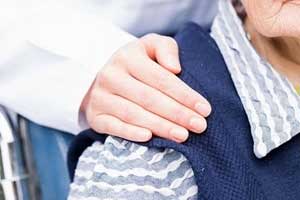- Home
- Editorial
- News
- Practice Guidelines
- Anesthesiology Guidelines
- Cancer Guidelines
- Cardiac Sciences Guidelines
- Critical Care Guidelines
- Dentistry Guidelines
- Dermatology Guidelines
- Diabetes and Endo Guidelines
- Diagnostics Guidelines
- ENT Guidelines
- Featured Practice Guidelines
- Gastroenterology Guidelines
- Geriatrics Guidelines
- Medicine Guidelines
- Nephrology Guidelines
- Neurosciences Guidelines
- Obs and Gynae Guidelines
- Ophthalmology Guidelines
- Orthopaedics Guidelines
- Paediatrics Guidelines
- Psychiatry Guidelines
- Pulmonology Guidelines
- Radiology Guidelines
- Surgery Guidelines
- Urology Guidelines
Increased social contact at 60s significantly lowers risk dementia in later life, finds study

WASHINGTON: Dementia is a progressive psychological disorder with no effective treatment. A study published in the PLOS medicine revealed that increased social contact at the 60s is associated with significantly lower risk dementia in later life.
While adults might find social media a bit of trouble, it can benefit them in a great way. The study published in PLOS has found that being more active socially in the 50s and 60s makes adults less prone to developing dementia later on. The study found that social contact earlier in life can play an important role in keeping off dementia.
Dementia is a major global health challenge but we also know that one in three cases are potentially preventable," said the study lead author, Dr. Andrew Sommerlad.
"We've found that social contact, in middle age and late-life, appears to lower the risk of dementia," added Sommerland.
Researchers tracked 10,228 participants who had been asked on six occasions between 1985 and 2013 about their frequency of social contact with friends and relatives.
The same participants also completed cognitive testing from 1997 onwards, and researchers referred to the study subjects' electronic health records up until 2017 to see if they were ever diagnosed with dementia.
Researchers found that increased social contact at the age of 60 is associated with a significantly lower risk of developing dementia later in life.
The analysis also showed that someone who saw friends almost daily at age 60 was 12 percent less likely to develop dementia than someone who only saw one or two friends every few months.
They found similarly strong associations between social contact at ages 50 and 70 and subsequent dementia. Social contact in mid to late life was similarly correlated with general cognitive measures.
According to the researchers, there are a few explanations behind this phenomenon.
"People who are socially engaged are exercising cognitive skills such as memory and language, which may help them to develop cognitive reserve while it may not stop their brains from changing, cognitive reserve could help people cope better with the effects of age and delay any symptoms of dementia," said senior author Professor Gill Livingston.
He added, "Spending more time with friends could also be good for mental wellbeing, and may correlate with being physically active."

Disclaimer: This site is primarily intended for healthcare professionals. Any content/information on this website does not replace the advice of medical and/or health professionals and should not be construed as medical/diagnostic advice/endorsement or prescription. Use of this site is subject to our terms of use, privacy policy, advertisement policy. © 2020 Minerva Medical Treatment Pvt Ltd